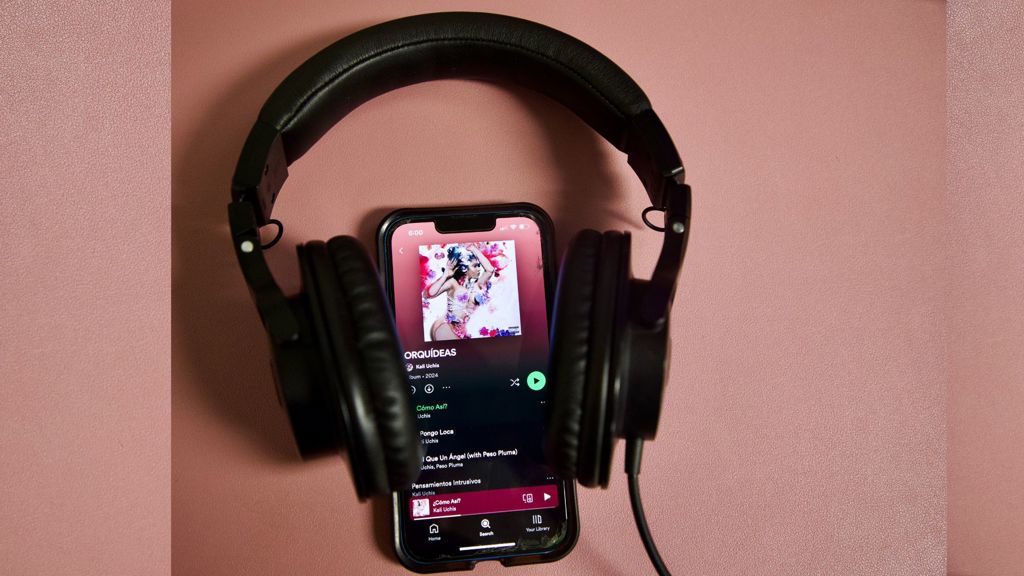Rating: 5/5
Kali Uchis’ take on it-girl pop music on Orquídeas moves through an ever-expanding catalogue of music genres that advance her status as an idol in Latin music and popular culture.
Orquídeas, released on Jan. 12, is the fourth LP installment in her discography, and the second to be recorded in Spanish. The album’s title, Orquídeas (Orchids) was carefully selected by the Colombian singer-songwriter to represent the mystical and seductive elements that permeate the album, all while embracing Colombian heritage.
“The orchid is the national flower of Colombia, and we have more species of orchid than anywhere on earth. I always felt distinctly intrigued and magnetized by the flower. This album is inspired by the timeless, eerie, mystic, striking, graceful and sensual allure of the orchid. With this vast scope of fresh energy, I wish to re-define the way we look at Latinas in music,” said Uchis in a Pitchfork interview.
The entirety of Orquídeas feels like an authentic and seamless integration of genres syncing in unison to push Uchis’ discography to new heights. “¿Cómo Así?” opens the album as a sultry pop-house experience tasked with highlighting Uchis’ ability to charm and make others wrapped around her finger.
Moving further down the track list, songs like “Igual Que Un Angel (with Peso Pluma)” pick up a slightly dreamier soulful disco-inspired pop beat, with collaborator Peso Pluma adapting to Uchis’ dreamy singing style and departing from his usual trap-corrido style. In the addition of various unique genres to paint the mosaic of sound in Orquídeas, Uchis drew from traditional Colombian genres like Bolero in “Te Mata” and oldie merengue in “Dame Beso // Muévete”.
As the song progresses, the album’s latter half transforms into a high-energy take on old-school and modern reggaeton. Out of the bunch, “Muñekita” plays tribute to the kind of reggaeton that many Latinos grew up with, yet, spinning the narrative into an empowered baddie anthem. The song also benefits greatly from the collaborators that Uchis selected in terms of variety in sound and charm in lyrics, as El Alfa and JT from City Girls effortlessly add a flare to “Muñekita”.
Another instance of reggaeton perfection in the album was Uchis’ collaboration with Colombian singer, KAROL G in “Labios Mordidos”. Though the song takes a more modern approach to reggaeton, it perfectly merges the sound and style of both artists, while introducing a sapphic theme in the album. Interestingly, Kali Uchis and KAROL G both wanted the song to be in their albums, but Uchis convinced KAROL G that the song was meant to be in Orquídeas. Kali Uchis’ artistic vision and growth are undeniable in Orquídeas.
The album proves itself as a melting pot of genres and styles, all masterfully fitted to Uchis’ style and dreamy vocal range. Every second of sound throughout the album sounds intentionally crafted, and it always succeeds in showing love for traditional Latin genres and themes.


